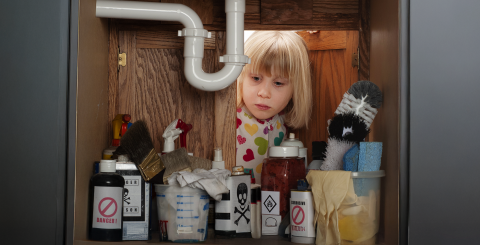Moving in an apartment: Have you made a budget?

If you’re about to move into an apartment for the first time, or if you’ve recently flown the nest, you already know you’re going to have more expenses than when you lived with your parents. Have you thought about making an apartment budget? And will that include tenant insurance?
Yes, talking about money and insurance can seem tedious. But budgeting doesn’t have to be! It takes just a little bit of planning each month to get a quick snapshot of your income and expenses. You’ll know where your money is going and whether you can afford to give yourself a little treat every now and then—or splurge on your new place!
Why make a monthly budget?
When you make a budget each month, you’ll have a better idea of how much you need to cover the costs of living in an apartment. But that’s not all! Take a look at these other good reasons for making a monthly budget:
- Stop living paycheque to paycheque, which is risky if you get sick or lose your job
- Have a cushion for the unexpected
- Be better able to resist impulse buying
- Plan your savings by putting money aside, whether for a trip or a future downpayment on a home
But to know where your money is going, first you need to understand where it comes from!
How to calculate your income?
Think about the amount and frequency of all your incoming funds: how often you get paid and the net amount (after deductions and taxes), or the amount of your loans and bursaries, as well as other amounts you receive during the year, such as benefits from public plans.
How to track your spending?
Now, enter it all in… no, not an Excel spreadsheet! That’s too long and complicated. It’s better to use a financial management app or ask your financial institution if they have an online tool. The easier your budget is to manage, the more motivated you’ll be to stick to it and track your spending.
Heads up: Before you enter your personal information on an app, read the terms of use and make sure your data is secure.
What expenses should you plan for?
When you rent your first apartment, you might not realize how many expenses are involved. Electricity and heating are the obvious ones, while insurance and other expenses might not be quite so obvious.
Here is a list of expenses you can expect when you leave home and start living in an apartment. These are different from monthly costs, which we’ll look at later on.
What you need to budget for
- Installation fees for internet, cable, and a home phone (if you need one), and sometimes fees for opening utility accounts
- Advance payment of the first month’s rent (security deposits are illegal in Québec)
- Moving expenses: truck rental (always more expensive on July 1!), moving boxes, possibly lost wages if you have to take time off on the day
- New appliances, if the apartment does not come furnished or semi-furnished
- Decor and accessories: painting, bedding, household products, dishes, small appliances (microwave, coffee maker, toaster or toaster oven, etc.)
- Basic groceries (flour, sugar, oil, spices, etc.)
Don’t forget to include pizza and drinks for everyone who helped you on moving day!
What are the fixed and variable monthly expenses?
In addition to rent, you’ll have a number of other costs each month. Include them in your budget to avoid unpleasant surprises!
Payable monthly (fixed costs)
- Rent
- Electricity and heating, if not included in the rent
- Internet, cable, and telephone
- Laundry, if you don’t have a washer/dryer in the apartment
- Parking or a sticker, if applicable
- Snow removal, if you have a parking space
Variable costs
- Groceries and eating out (including coffee shops)
- Transportation (public transit, driver’s licence and registration, gas, repairs, auto insurance)
- Clothing and personal care (pharmacy, dentist, hair salon)
- Education expenses (tuition, school supplies, computer equipment)
- Leisure (going out, books, music, etc.)
- Debt repayment (student loans, credit cards, and lines of credit)
- Miscellaneous expenses such as pet care, gifts, etc.
Make sure your budget has enough room to account for future rent increases.
Wow! That’s a lot, isn’t it?
But there’s one more important thing. It might not be mandatory, but it’s money well spent for peace of mind.
Renters insurance: Great protection at a great price
It’s inexpensive, easy to obtain, and loaded with benefits. Renters insurance is a no-brainer when you move to an apartment. Unfortunately, people often forget to buy it, maybe because they don’t know how affordable and easy it is.
For a low monthly amount, depending on the deductible you choose and the value of your personal property, renters insurance gives you a wide range of coverage, such as liability for accidental property damage and bodily injury to third parties; fire, theft, and vandalism coverage for your personal property; and additional living expenses if you need to move out due to a covered loss.
Why should you have renters insurance? Because your landlord’s insurance doesn’t cover you! If something serious happens, you could be held financially responsible, which would make a very big hole in your budget. Plus, you can save on a renters policy =by shopping around and bundling your insurance. There’s no reason NOT to have it!
Ready for apartment life? Promutuel Insurance is THERE for you!
Do you feel financially ready to rent your first apartment? If the only thing missing from your monthly budget is tenant insurance tailored to your needs, Promutuel Insurance’s damage insurance representatives are THERE to advise you!




